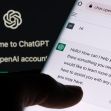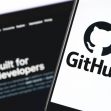The era of artificial intelligence is here. And while developers and tech leaders have only scratched the surface of what’s possible, legal obstacles continue to pop up forcing AI leaders to reexamine their operating procedures. The most recent legal challenge targets OpenAI, the makers of what’s undoubtedly been the face of AI —ChatGPT.
The company has been hit with a lawsuit that accuses the program of being built on stolen and misappropriated data collected from the internet. The proposed class action lawsuit was filed in the United States District Court for the Northern District of California by Clarkson Law Firm on June 28 and represents 16 plaintiffs. The lawsuit accuses Open AI, the makers of ChatGPT, of secretly compiling “massive amounts of personal data from the internet” to build the undeniably impressive chat generation tool.
The lawsuit details that OpenAI collected “essentially every piece of data exchanged on the internet it could take,” and did so without notice, consent from data owners, or “just compensation.”
Like other AI tools, ChatGPT relies on a technical concept known as deep learning. This complex concept of deep learning (or machine learning) taps into vastly connected networks of data systems that work in tandem with algorithms to recognize, repeat, and refine patterns.
These patterns are intended to do several things, one of which is to mimic how humans process data. While many AI tools, including ChatGPT, appear to create content that is organic and original, the reality is that these highly sophisticated deep learning processes and ever-changing algorithms are able to piece together generated content built off of already created content. In the case of ChatGPT, the program scans multiple databases to compile, refine, and regurgitate applicable content that aligns with a user’s query.
It’s this collection of this data and the manner in which the company’s deep learning examines the personal data of users on the internet that the lawsuit takes issue with.
Timothy K. Giordano, partner at the Clarkson law firm representing the plaintiffs, explains, “By collecting previously obscure personal data of millions and misappropriating it to develop a volatile, untested technology, OpenAI put everyone in a zone of risk that is incalculable – but unacceptable by any measure of responsible data protection and use.”
In addition to its methodology behind its deep learning practices, the lawsuit contends that ChatGPT and other OpenAI products “use stolen private information, including personally identifiable information, from hundreds of millions of internet users, including children of all ages, without their informed consent or knowledge.”
Under the federal Children Online Privacy Protection Act (COPPA), the privacy of children under the age of 13 is protected by requiring parental consent before any collection or usage of personal data and information can occur.
The chat generation tool which launched in November 2022 quickly skyrocketed as one of the most in-demand applications on the internet. 60 days after it launched, there were 100 million active users with 60 million visits per day. The platform hit a record-breaking one million users in just five days after it first launched, the fastest growth of any platform or online tool before it.
Despite this surge in popularity, the lawsuit contends that ChatGPT grew on the backs of everyday users who did not give their consent for the platform to train on their personal information. The concept of deep learning relies on vast data collection and analysis, but there is no clear legislation or regulation that dictates how and in what manner deep learning can take place.
As technology and the development of AI rapidly grows, lawmakers have been slow to catch up. Days before the lawsuit, on June 20, U.S. lawmakers introduced the National AI Commission Act. Under this act, a commission was developed to study how the country would approach, address, and potentially regulate AI. European parliaments passed a similar Artificial Intelligence Act during the first week of June that aims to tackle the same issues.
While lawmakers try to keep up with this rapidly developing tech, it's expected that lawsuits like this will continue to trickle forward.
The lawsuit is seeking injunctive relief through a temporary freeze on OpenAI products. The suit is also seeking to have the company pay financial compensation in the form of “data dividends” to people whose information was used to help train the program.






